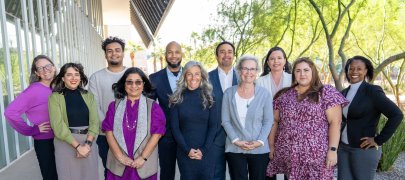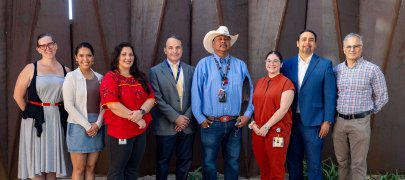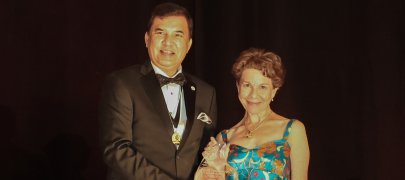Coronavirus Disease 2019 (COVID-19)

A new coronavirus (COVID-19) has caused an outbreak of respiratory illness, which has been serious or fatal in a small percentage of people. The coronavirus, initially detected in China, has since spread to multiple countries, including the United States. Current understanding about how the coronavirus is contracted and spreads is still evolving. We continue to monitor this situation.
The University of Arizona College of Medicine – Phoenix is cooperating with the Arizona Department of Health Services, the University of Arizona and our educational partners to ensure the health of our medical students, faculty and staff. You may find information about the virus and how to protect yourself through these sources:
- Arizona Department of Health Services.
- University of Arizona Campus Health.
- The World Health Organization.
- Centers for Disease Control and Prevention.
- AAMC Webinar: What Health Care Providers Need to Know About COVID-19.
- COVID-19 Resources in Spanish (en español).
The CDC recommends practicing good personal health habits. It is important for everyone to take preventive actions that can help prevent the spread of respiratory illnesses:
- Avoid close contact with people who are sick.
- Stay home when you are sick, except to get medical care.
- Cover your coughs and sneezes with a tissue.
- Clean frequently touched surfaces and objects daily (e.g., tables, counter-tops, light switches, doorknobs and cabinet handles) using a regular household detergent and water.
- Wash your hands often with soap and water for at least 20 seconds, especially after going to the bathroom; before eating; and after blowing your nose, coughing or sneezing. If soap and water are not readily available, use a hand sanitizer that contains at least 60% alcohol. Always wash your hands with soap and water if your hands are visibly dirty.
Ask a Doctor: The Coronavirus
- Murtaza Akhter, MD – When Should You Go to the Emergency Room (PDF).
- Thomas Ardiles, MD – What People with Pre-existing Pulmonary Conditions Need to Know to Protect Themselves From COVID-19 (PDF).
- Natasha Bhuyan, MD – Is It Safe to Receive Packages During the Coronavirus Outbreak? (PDF).
- Negin Blattman, MD – Common Questions about the Coronavirus (PDF).
- Martha Gulati, MD – What People With Heart Issues Need to Know about COVID-19 (PDF).
- Will Heise, MD – Ibuprofen or Acetaminophen to Treat Fever Associated with the Novel Coronavirus? A Physician Weighs In (PDF).
- Farshad Fani Marvasti, MD, MPH – Can a Poor Diet Increase Risk of Contracting Coronavirus? (PDF).
- Jordan Perlow, MD – Pregnancy During the Coronavirus Outbreak: What You Need to Know (PDF).
- Alena S. Petty, DO – Coping with Anxiety During the COVID-19 Pandemic (PDF).
COVID-19 Student Service Corps
Through interprofessional student service-learning projects, the *COVID-19 Student Service Corps at the College of Medicine – Phoenix aims to support Arizona health systems, as well as their patients, the workforce and communities facing the COVID-19 pandemic.
*The COVID-19 Student Service Corps was an initiative started by Columbia University health professions students.
Latest Campus Updates
- March 23, 2020 – Domestic and International Travel Update.
- March 17, 2020 – Pause in Clinical Clerkships for Medical Students.
- March 16, 2020 – Class of 2020 Match Day Update.
- March 12, 2020 – COVID-19 Proactive Measures.
- March 7, 2020 – Coronavirus Disease 2019 (COVID-19) Update.
*Image credit: Centers for Disease Control and Prevention
About the College
Founded in 2007, the University of Arizona College of Medicine – Phoenix inspires and trains exemplary physicians, scientists and leaders to optimize health and health care in Arizona and beyond. By cultivating collaborative research locally and globally, the college accelerates discovery in a number of critical areas — including cancer, stroke, traumatic brain injury and cardiovascular disease. Championed as a student-centric campus, the college has graduated more than 900 physicians, all of whom received exceptional training from nine clinical partners and more than 2,700 diverse faculty members. As the anchor to the Phoenix Bioscience Core, which is projected to have an economic impact of $3.1 billion by 2025, the college prides itself on engaging with the community, fostering education, inclusion, access and advocacy.


